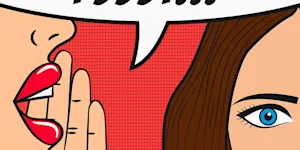What Makes This Word Tick
Ah, "surfeit" — it's the polite way of saying “a bit too much of a good thing.” It hails from Middle English and has long been used to describe an overabundance or excess of something, often food or drink. Much like the feeling after a holiday feast, it gently signals when something has crossed the line from enough to just plain too much.
If Surfeit Were a Person…
Surfeit would be that jolly uncle at family gatherings, always insisting on second helpings and offering up more stories than anyone can manage to hear. He means well and loves to indulge in life's pleasures, but tends to overdo it just a smidgen, usually ending with a satisfied sigh and perhaps a nap on the couch.
How This Word Has Changed Over Time
Though its origins are grounded in the gluttonous excesses of food and drink, "surfeit" has expanded its range over the centuries. Now, it can apply to just about any form of excess, from attention to details to saturation in the news. It manages to sound both dignified and a tad judgmental, which is quite a balancing act.
Old Sayings and Proverbs That Use Surfeit
While "surfeit" might not pop up verbatim in many proverbs, the concept is everywhere. Consider "too much of a good thing can be bad," which gets at the heart of surfeit’s essence — the idea that overindulgence brings its own problems.
Surprising Facts About Surfeit
Historically, consuming too much could lead to what was called a “surfeit,” not just as an abstract idea but a real medical condition. Back in the day, overeating was thought to lead to imbalances in one's humors — the medieval version of today's food comas.
Out and About With This Word
In modern life, "surfeit" may appear in financial news discussing an overload of market options or in cultural critiques about the overwhelming amount of media content. Next time you stand perplexed in the cereal aisle, you might utter, "What a surfeit of choices!"
Pop Culture Moments Where Surfeit Was Used
While movies and television don’t often parade the word “surfeit,” the themes abound. Think of cooking shows where chefs produce a dizzying array of dishes or reality programs where too much drama is both the point and the problem — each a tableau of surfeit in motion.
The Word in Literature
"Surfeit" can often be found flitting through novels that delve into opulence and decadence, fitting perfectly into the world of lavish parties and excess, like those in F. Scott Fitzgerald's "The Great Gatsby." It's the literary equivalent of a raised eyebrow over too much of something good.
Moments in History with Surfeit
In the roaring '20s, the nation's love for jazz, parties, and unchecked optimism was a living embodiment of surfeit. The stock market crash of 1929 can be seen as history’s brutal reminder of what happens when excess gets out of hand.
This Word Around the World
Surprisingly, the essence of surfeit crosses cultural boundaries. In French, "excès" is often used similarly, while in Italian, the word "eccesso" captures the spirit. These international cousins show that human beings everywhere aren't strangers to the pitfalls of indulgence.
Where Does It Come From?
The word "surfeit" comes from the Old French "sourfait," meaning excess, and further back, the Latin "superfacere," which literally translates to "overdo." It's got a pedigree that’s as rich as a double-chocolate cake.
How People Misuse This Word
Sometimes folks think "surfeit" means simply having a lot, rather than a problematic amount. Remember, it’s not for when there's just plenty — it’s for when there’s so much that it causes issues, like being unable to button your jeans.
Words It’s Often Confused With
Suffice: Whereas "surfeit" is all about too much, "suffice" deals with enough.
Surpass: This is about exceeding expectations, not simply exceeding quantity.
Saturate: Often used in contexts involving a complete soaking or coverage, but without the hint of trouble that "surfeit" suggests.
Additional Synonyms and Antonyms
Some synonyms include "glut," "excess," and "overabundance." Its antonyms, on the other hand, are words like "deficiency," "lack," and "scarcity."
Want to Try It Out in a Sentence?
"After the holiday feast, we were left with a surfeit of desserts, each more tempting than the last, and began to feel the consequences of our indulgence."
















